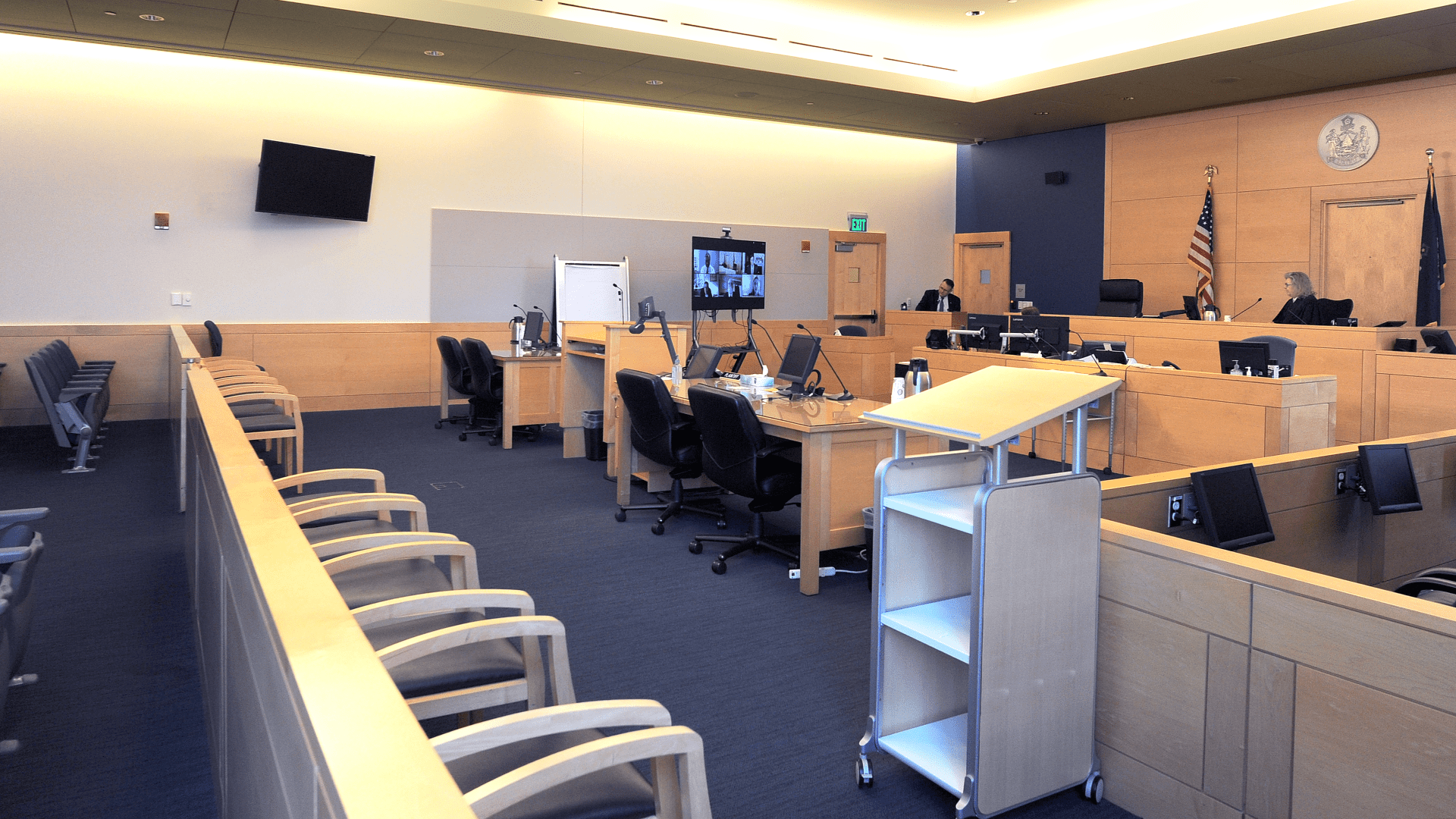An advisory committee to the U.S. Commission on Civil Rights is urging Maine’s political leadership to boost spending on defense lawyers for the state’s indigent clients ahead of the release of a report on its overburdened public defense system later this year.
Governor Janet Mills, state legislators and Chief Justice of the Maine Supreme Judicial Court Valerie Stanfill are the planned recipients of a letter that asks them to, “Provide funding at a minimum at the level recommended by the Maine Commission on Indigent Legal Services to ensure enough provision for effective legal services.” The letter is in response to news reports about budget proposals “far below” what was needed to provide effective legal counsel and a meaningful defense against prosecution, according to a draft of the letter discussed at the advisory commission’s meeting on Thursday.
The advisory committee has been investigating whether “Maine’s lack of a robust criminal defender system impacts the civil rights of indigent criminal defendants,” since last year. There are 56 state and territory advisory committees made up of local volunteers who assist the federal commission with fact-finding, investigations and information dissemination.
Maine’s advisory committee is expected to publish a report this year about Maine’s defense system and the civil rights implications for people with disabilities, who speak a language other than English, and people of color.
Due to the time sensitive nature of budget proposals, the advisory committee voted to make a preliminary recommendation on funding for MCILS. State lawmakers are currently working on the biennium budget, which will set the next two years of state spending.
The Maine Commission on Indigent Legal Services, or MCILS, asked to increase its budget to $62.1 million last year, more than double the annual budget at the time. MCILS is responsible for overseeing attorneys appointed to represent adults and children charged with crimes who cannot afford to hire their own lawyer. The state is required to provide this legal service to poor defendants.
MCILS had an annual budget of $28.1 million. Mills included an additional $17 million for MCILS to increase pay and hire public defenders in her budget proposal to lawmakers this year.
Members of the legislative Judiciary Committee instead proposed that the budget include an additional $18.6 million annually to keep the reimbursement rate for court-appointed attorneys at $150 an hour and an additional $3 million annually to open the state’s first county-based public defender office.
A new deputy director position was also added to the budget to help MCILS with opening the public defender office and long-term strategic planning.
This is the third year in a row that state lawmakers will try to fund what would be Maine’s first standalone public defender office. In 2021, the House and Senate passed a bill to open a public defender office but it ultimately didn’t get funded. In 2022, the state’s Republican and Democratic caucuses agreed to split the cost of hiring five public defenders after the state budget again left out funding for a public defender office.
The state’s first five public defenders were hired in December 2022 as a “rural defender unit” to travel and work on cases where there are not enough local defense attorneys. The supervisor resigned in January.
The proposed county-based public defender office would be rooted in one of the state’s eight prosecutorial districts, putting it on par with the district attorney’s offices throughout the state, said MCILS Executive Director Justin Andrus, who plans to leave the agency by the end of June.
“I think it’s really important for us to do this experiment. I think we need to see what happens in a prosecutorial district when we put one fully featured, best practices compliant defender office there and see what it can take for caseloads and stay with appropriate workloads,” Andrus told lawmakers on Tuesday.
Under the current budget proposal, a 23-person public defender office would include:
- 10 public defenders
- 1 supervising district defender
- 1 office manager
- 3 paralegals
- 4 social workers
- 4 investigators
The courts have struggled in recent months to find enough available lawyers to appoint to defend indigent clients in need of lawyers — leading Chief Justice Stanfill to remark in November, “We are failing in this state in our justice systems — criminal and civil.”
State lawmakers recently increased the reimbursement rate for court-appointed defense lawyers to $150 per hour and some lawyers have returned to MCILS. The new pay rate took effect March 1 and is set to expire on June 30 unless lawmakers make the change permanent.
State Sen. Anne Carney (D-Cape Elizabeth) who chairs the Judiciary Committee acknowledged that they were not funding for all of the initiatives that MCILS said it needed, including an appellate office, post-conviction review office and second public defender office.
“I know that MCILS very much wished us to have us authorize two units rather than one. I think one fully staffed unit might seem like a conservative place to be, but I do think we really need to make sure this first office succeeds,” Carney said following the vote.
Samantha Hogan covers the criminal justice system for The Maine Monitor. Reach her with other story ideas by email: gro.r1754675475otino1754675475menia1754675475meht@1754675475ahtna1754675475mas1754675475.








